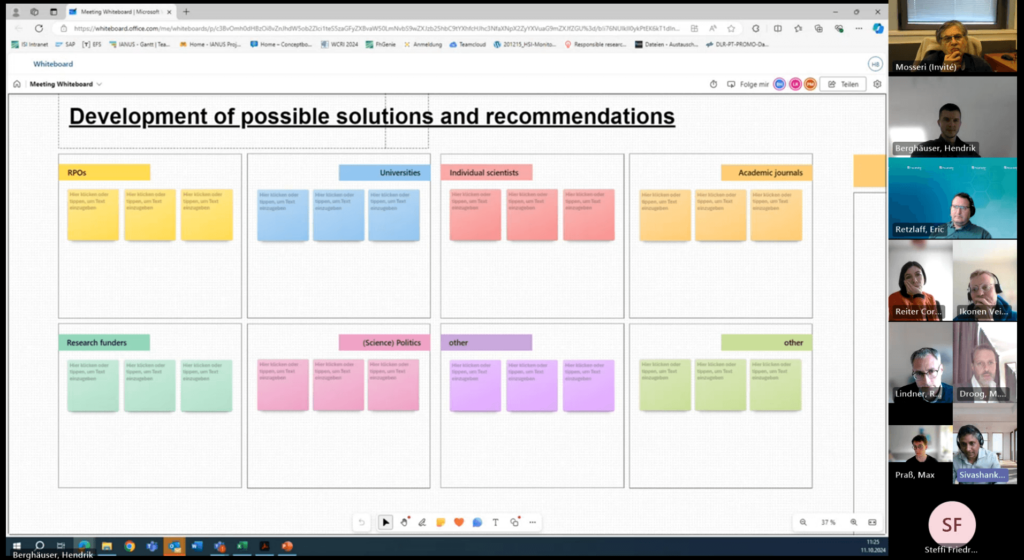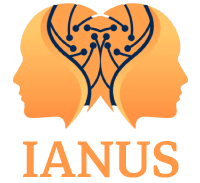
In the IANUS project various policy labs are being conducted that address different players and types of organizations in the science system.
While science continues to enjoy a high level of trust, we see evidence that this trust is eroding in some parts of society. The IANUS project, funded under Horizon Europe, is analyzing the underlying elements of trust in science. Our goal is to improve our understanding of what is involved in (dis)trust, to assess the current status of trust in science, and to open up practical and feasible pathways for restoring and maintaining trust in science.
In order to achieve empirical insights and to develop valid recommendations for science policy makers, we are conducting policy labs tailored to specific actors of the science governance system. On Friday, 11 October, the policy lab on trust in science – the perspective of Research Performing Organizations (RPOs) took place.
The lab was conducted in the format of a virtual focus group discussion in which experts from various RPOs from across Europe in the fields of research integrity, research ethics and responsible research exchanged their experiences and co-created recommendations which were jointly validated and incorporated into policy briefs for science policy makers.
Experts from TNO (the Netherlands), AIT (Austria), CNRS (France), VTT (Finland), LIST (Luxembourg) and the Fraunhofer Society (Germany) were represented. Specific fields of action were jointly identified and assigned to actors in the scientific community.
On the basis of the discussion results, IANUS derived some initial critical points for action. For example, the discussion highlighted how the different funding structures of RPOs might impact the quality of scientific research. That is because, due to a very high dependency on third-party funding compared to universities, there is sometimes not the necessary time and resources to stick to the highest standards of methodological rigor due to the heavy workload and contract research structure, pushing for fast outputs. At the same time, high competition and high dependence on this kind of funding might overestimate the positive impact of each research, downplaying possible negatives, sometimes suggesting a trend of inflating research results and proposals with high expectations, which are not always met. The discussion then highlighted how researchers and particularly RPOs’ scientific freedom is limited as the research agenda is mainly driven by funders.
Another example was the discussion on social media usage among scientists. The topic was especially timely given the recent surge of AI. The participants highlighted how it is often a battle for attention, since non-mainstream results tend to get more momentum and are believed more. It is more difficult for the broad public to differentiate on social media between “serious” and “real” scientists and “alternative” scientists, with the result that the catchier communication often gets more attention. It does not help how, in science communication, it is overall easier to get through with opinions questioning research results compared to opinions defending existing knowledge.
The participants highlighted how RPOs should engage more with the broader public beyond singular events like Open days or workshops. This engagement is setting important seeds for inclusivity and openness in science and for a trustful relation and should therefore be included into RPO|s key performance indicators. They underline the need for a kind of multi-stakeholder dialogue and assessment, opening up the research process through citizen science. Some participants also made the claim for researchers to “get their hands dirty” and engage with science skeptics, even if it might be challenging not to give people with radical positions or conspiracists more platform power.
The results of the policy lab will be finalized in a policy brief in 2025, outlining recommendations for RPOs, universities, research funders, as well as individual researchers.
